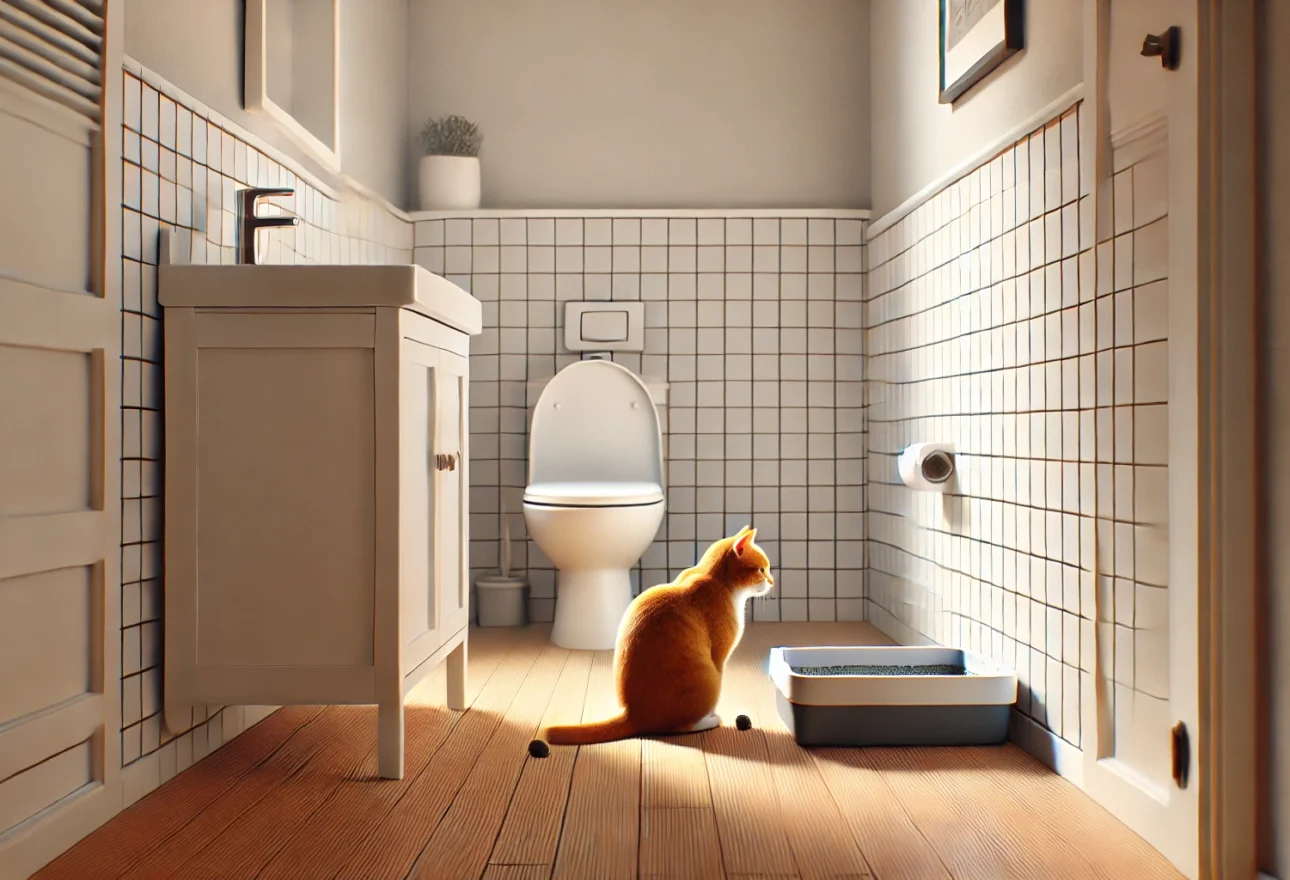Why Is My Cat Pooping Outside the Litter Box? If you’re here, it’s likely that you’ve recently found your cat pooping somewhere other than their litter box. It’s a confusing and often frustrating situation, leaving many cat owners wondering what went wrong and how to fix it. But rest assured, you’re not alone. Litter box issues are common among cat owners, and with some careful attention, understanding, and the right changes, you can help your cat get back to using their litter box consistently.
This guide will walk you through the potential reasons for your cat’s behavior, practical solutions, and expert insights to help you create a clean, comfortable litter box environment your cat will actually want to use.
Table of Contents
Understanding the Issue: Why Cats Poop Outside the Litter Box
Common Reasons Cats Avoid the Litter Box
Cats can be particular about their environment, and there are a few primary reasons they may begin to avoid their litter box. Determining the root cause is the initial step toward finding a solution.
- Behavioral Issues
Cats are sensitive creatures, and changes in their environment or routine can cause behavioral issues. Stress and anxiety, especially related to changes like new pets, different routines, or unfamiliar people in the home, can trigger cats to find alternative places to poop. - Medical Conditions
Health problems, such as urinary tract infections, gastrointestinal issues, or arthritis, can cause your cat discomfort when using the litter box. If you notice changes in your cat’s behavior along with symptoms like frequent urination, straining, or lethargy, it’s best to consult a veterinarian. - Litter Box Problems
Cats are naturally clean animals, and a dirty litter box or one that doesn’t feel right to them may cause them to avoid it. From the type of litter to the box’s location, cats can be surprisingly picky. Ensuring your litter box meets your cat’s needs is essential.
The Importance of the Litter Box Environment
Creating an ideal litter box environment goes a long way in encouraging your cat to use it consistently. Here’s what to consider:
- Litter Box Cleanliness
Cats are sensitive to cleanliness, and a dirty litter box can quickly become unappealing. Ideally, you should scoop the litter box daily, replace the litter weekly, and wash the box once a month. This helps eliminate unpleasant odors and bacteria, making the box more inviting. - Location, Location, Location
Where you place the litter box matters. Cats prefer quiet, low-traffic areas where they feel safe while doing their business. A spot that’s too loud or frequently disturbed may make your cat avoid the box altogether. - Type of Litter
Not all cats like the same litter. Experimenting with different types (clumping, non-clumping, scented, unscented) may help you find one that suits your cat’s preferences. Often, unscented, soft-textured litter is a safe choice, as it feels more natural to most cats.
How to Address the Problem
Identifying Underlying Medical Issues
If you’re noticing litter box avoidance for the first time or a sudden change in behavior, it’s wise to rule out medical issues before making changes to the litter box setup.
When to See a Vet:
If your cat shows any signs of discomfort, such as straining, blood in their stool, vomiting, or changes in appetite, it’s time to consult a veterinarian. Sometimes, what seems like a behavioral issue may actually be a sign of health problems that need prompt attention.
Modifying Behavior and Litter Box Setup
If your cat’s health checks out, the next step is to make their litter box environment as appealing as possible. Try the following tips:
- Provide Multiple Litter Boxes
Experts suggest providing one litter box for each cat, plus an additional one. For example, if you have two cats, you should ideally have three boxes. This helps reduce territorial disputes and offers your cat multiple options, which can reduce stress and encourage consistent use. - Use Pheromone Diffusers
Stress is often an underlying cause of litter box avoidance. Pheromone diffusers, like Feliway, mimic natural cat pheromones, which can help create a calming environment for your cat. Place a diffuser near the litter box to help reduce stress and encourage regular use. - Experiment with Litter Types
Try offering your cat a variety of litters to choose from. Set up two or three boxes with different types of litter to see which one they prefer. This can be especially helpful if they’re transitioning from outdoor environments where they had softer, more natural surfaces. - Choose the Right Box Size and Style
Some cats prefer open boxes where they can see their surroundings, while others feel more comfortable with a covered box. Additionally, a box that’s too small can feel restrictive. Choosing a spacious box that allows your cat to move around can make a difference.
Frequently Asked Questions (FAQ)
Why is my cat pooping outside the litter box suddenly?
A sudden change in behavior can be concerning. Common reasons for this include stress due to changes in the home, new people or animals, and sometimes health issues. It’s always best to consult a vet if you notice sudden, uncharacteristic behavior.
Can a dirty litter box cause my cat to poop outside it?
Absolutely. Cats are very clean animals, and a dirty litter box can be highly unappealing to them. Scooping daily, changing litter weekly, and regular washing can prevent this from being an issue.
How can I encourage my cat to use the litter box again?
Patience and experimentation are key. Try modifying the litter box setup, such as changing the type of litter, adjusting the location, or ensuring it’s consistently clean. Using calming aids like pheromone diffusers can also help if stress is a contributing factor.
Conclusion
Litter box issues can be frustrating, but they’re not uncommon. By understanding the possible reasons for your cat’s behavior and taking proactive steps to create an ideal litter box environment, you can help your cat feel more comfortable and encourage them to use their box consistently. Remember, patience is key – and with time and care, you can solve this issue together with your feline friend.







